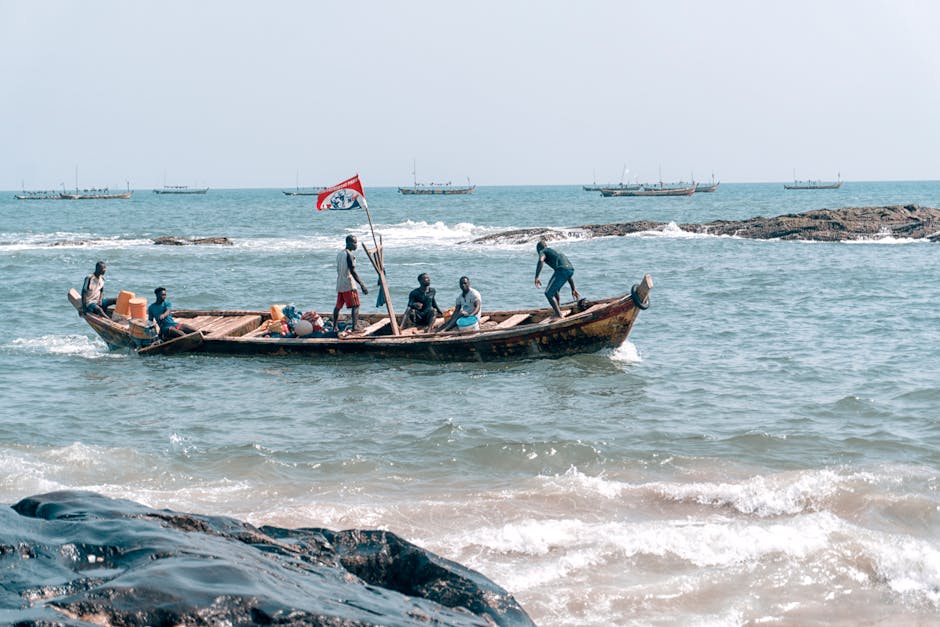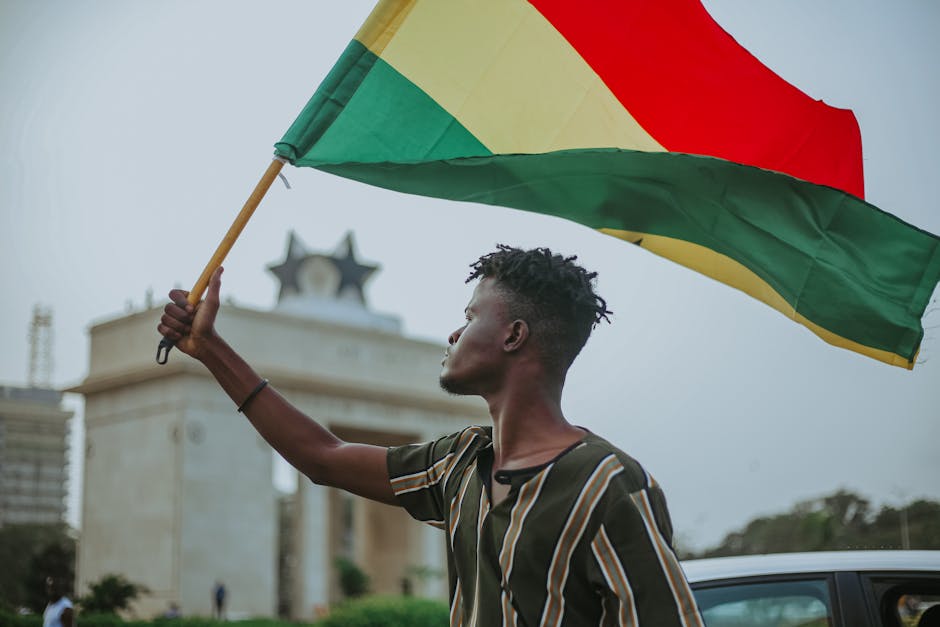


 Ghana
Ghana
Ghana is an amazing travel destination for those looking to explore a vibrant and diverse culture. From its stunning beaches to its lush rainforests, Ghana offers something for everyone. The country is known for its friendly people, delicious cuisine, and vibrant music and dance. Visitors can explore the bustling markets of Accra, take a boat ride on Lake Volta, or visit the historic slave castles along the coast. With its rich history and culture, Ghana is sure to provide an unforgettable experience.
Activities: Canoeing, Rafting, Hiking, Camping
Landscapes: Beaches, Forests, Woodlands, Mountains, Waterfalls, Rivers, Lakes
Topics: Nature, Wildlife, Food, History, Festivals, Adventure
Is Ghana expensive?
Ghana currency
₵Ghanaian cedi (GHS)
Weather in Ghana
The weather in Ghana is generally warm and humid. The average temperature is around 25°C (77°F) throughout the year, with temperatures rarely dropping below 20°C (68°F). The rainy season runs from April to July, with the heaviest rainfall occurring in June and July. During this time, there are frequent thunderstorms and heavy downpours. The dry season runs from August to March, with the hottest months being December and January.
- Yearly temperature range: 22°C - 34°C
- Monthly rainfall range: 16mm - 175mm
- Daily sunshine range: 5h - 9h
Traveling Ghana
Bus
Buses are the most common form of transportation in Ghana. They are available in major cities and towns, and can be used to travel between cities and towns.
Taxi
Taxis are a popular way to get around Ghana. They are available in major cities and towns, and can be used to travel between cities and towns.
Train
Trains are available in some parts of Ghana, but they are not as common as buses or taxis. They can be used to travel between cities and towns.
Car Rental
Car rental is available in some parts of Ghana, but it is not as common as other forms of transportation. It can be used to travel between cities and towns.
Car rental
Is Ghana safe?
Crime
The most common crimes in Ghana are pickpocketing, purse snatching, and other forms of petty theft. Other crimes such as fraud, drug trafficking, and violent crime are also present. It is important to be aware of your surroundings and take precautions when traveling in Ghana. Be sure to keep your valuables secure and avoid carrying large amounts of cash.
Travel advisory
3.4/5Ghana has a current risk level of 3.4 (out of 5). We advise: Use some caution when travelling Ghana.Last updated: Thu Mar 23 2023
Health
Malaria
Malaria is a risk in Ghana, so it is important to take preventative measures such as using insect repellent and sleeping under a mosquito net. Vaccinations for hepatitis A and typhoid are also recommended.
Insect repellentFood and Water Safety
It is important to only drink bottled or boiled water, and to avoid eating raw or undercooked food. Fruits and vegetables should be washed thoroughly before eating.
Animal-Borne Diseases
Rabies is present in Ghana, so it is important to avoid contact with animals, especially dogs and cats. Vaccination against rabies is recommended for those who may be exposed to animals.
Air Quality
Air pollution levels can be high in some areas of Ghana, so it is important to take precautions such as wearing a face mask when outdoors.
Ghana customs and etiquette
Be Respectful
Show respect for the local culture, customs, and people. Avoid making assumptions about the country or its people.
Be Courteous
Greet people with a smile and a handshake. Speak in a respectful tone and be mindful of your body language.
Dress Appropriately
Dress modestly when visiting religious sites or rural areas. Avoid wearing revealing clothing.
Be Aware of Local Laws
Familiarize yourself with local laws and customs before traveling to Ghana. Respect local laws and regulations.
Be Mindful of Your Belongings
Keep your belongings safe and secure at all times. Be aware of pickpockets in crowded areas.
TP
Copyright 2023